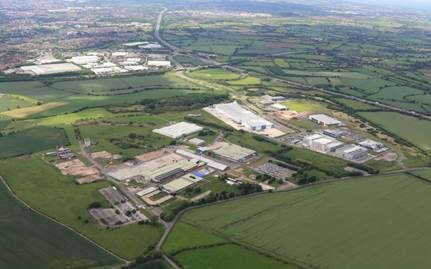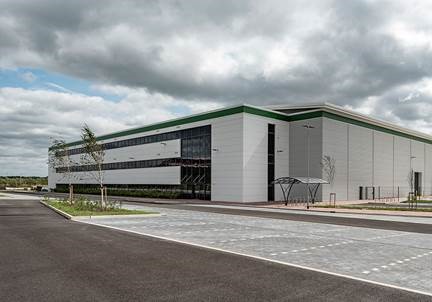
The real estate industry must work together to reduce our environmental impact
Written by Victoria Turnbull, Joint Managing Director.
As someone who, I must confess, until recently has been slow to react to the challenges our climate faces, I have been, quite rightly, dragged into the 21st century to ensure that our business helps to contribute to a solution to the environmental challenges we currently face.
I was at my first round table discussion on developing and operating carbon neutral buildings recently. As an industry, the construction industry is known as being ‘old school’ and often slow to react to change. However, in this instance the effect that we have as an industry on climate change is something that we cannot ignore. Developers, occupiers and investors are all waking up to the challenges we face and putting in place more and more stringent requirements for their own occupation and portfolios. The stalwart categorisation of a building as simply BREEAM Very Good and EPC B are simply not enough. We find ourselves looking for solutions as to how to make our buildings carbon neutral, BREEAM Excellent or Outstanding and EPC A+.
I was amazed to read that concrete is the second most used material on our planet behind water! What a sobering fact! The amount of embodied carbon in the concrete we use in construction, be that building Opus’ developments, constructing roads, bridges or residential, our effect is material. Furthermore, the positive effect that we can have by simply changing the supply and manufacture of just one of the materials that we use is outstanding. Like with anything, concrete has alternatives, products that can be more locally sourced and more environmentally manufactured, however, those alternatives are currently more expensive and more difficult to come by. But it needs us to start to make a stand. If we can all look to make small changes and if we can get the industry as a whole to act together as a force for change, perhaps helped by some additional legislation to lead those less willing down the same path, we can help to reduce the cost of manufacturing more sustainable construction materials, use recycled materials and locally source materials in a better way. Like with any change through history, when we went from horse and cart to combustion engines and now as we move towards electric vehicles, the costs of those first involved in the foray into those sectors was huge. However, as more and more people look to join this force for change, the costs for becoming more sustainable will follow an exponential curve of getting more and more affordable.
It certainly feels that we are in the initial phase of making this change. But we must remember 80% of the buildings that are here today will still be here in 2050 (the government’s target for carbon neutrality). I’m glad to say that Opus is currently responsible for delivering a large amount of commercial development across the UK and I would like to put our name to buildings that help us collectively meet our government’s brave targets. As ever, with any challenge in life the road to Damascus is not necessarily an easy one. There is currently a huge skill and knowledge gap in this area and there is a huge amount of ‘green washing’ by certain people in the industry. We do need a better way of measuring our impact and holding us all to account.
As part of our continued journey towards improving our environmental credentials we are publishing our Sustainable Design Brief which can be found here (as a bit of light bedtime reading for those that are interested!). I hope that we all will feel compelled to do more. I hope we all, as an industry, will grasp the nettle of the challenge that is global warming and I hope that we can prove to people that we are capable of leading the way. We are here to build buildings that can and will stand the test of time.

Opus Land and Savills Investment Management purchased a brownfield site, which was formerly a Ford Factory car park and obtained planning for a 60,000 sq. ft retail space, located just 0.5 miles from the town centre and 15 minutes’ walk from the train station.

Together with their joint venture partner, Manse LLP, and on behalf of Rolls-Royce, Opus Land are delivering more than 2 million sq. ft of space at Prospero, Ansty, starting with a 490,000 sq. ft manufacturing facility for Meggitt PLC.

Opus Land and Bridges completed an 153,800 sq. ft unit with 16 loading doors at the Kingwood Lakeside Business Park in Cannock.

A 160,950 sq. ft multi-let office, three miles from Birmingham city centre which underwent a comprehensive refurbishment programme by Opus Land and was sold for £24.25m.


















